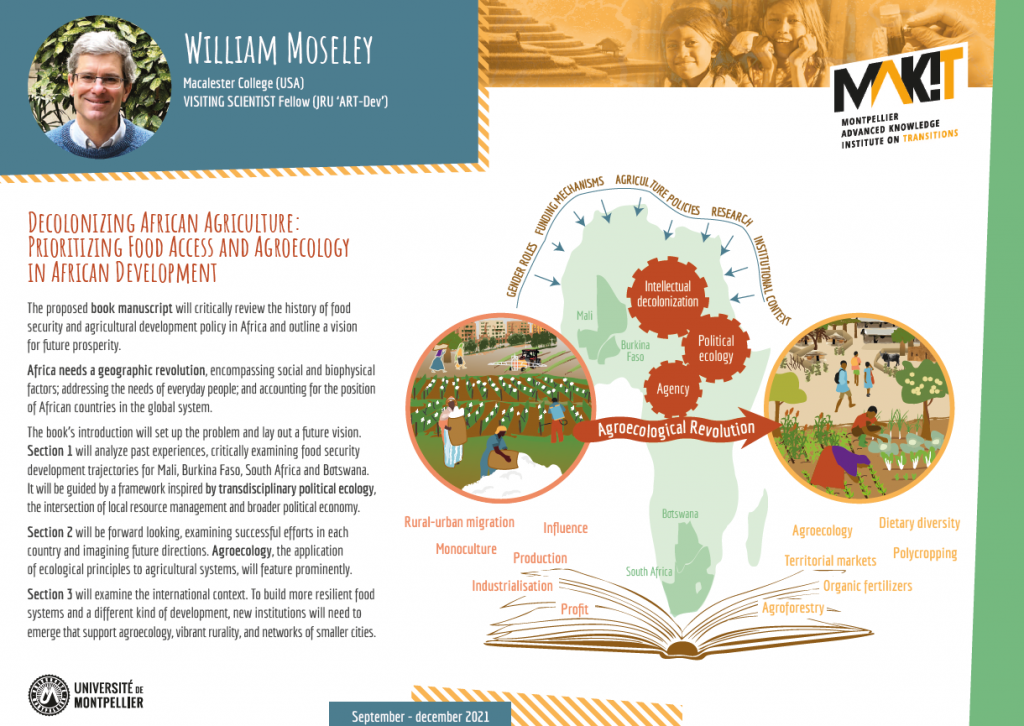William Moseley
William Moseley is DeWitt Wallace Professor of Geography, and Director of the Food, Agriculture & Society Program, at Macalester College in Saint Paul, USA. His research interests include political ecology, tropical agriculture, food security and development policy.
He is the author of more than 100 peer-reviewed articles and books chapters, as well as eight books, including: Africa’s Green Revolution: Critical Perspectives on New Agricultural Technologies and Systems (2016); Land Reform in South Africa: An Uneven Transformation (2015); and Hanging by a Thread: Cotton, Globalization and Poverty in Africa (2008). He currently serves as a member of the steering committee of the UN High Level Panel of Experts for Food Security and Nutrition, as President-Elect of the Mande Studies Association, and sits on the editorial boards of several academic journals.
He previously served as associate editor of Food Policy, editor of the African Geographical Review, a national councilor to the American Association of Geographers (AAG), and as chair of the AAG political ecology specialty group. In 2013 he won the AAG Media award, and in 2016 the AAG Kwadwo Konadu-Agyemang Distinguished Africa Scholar Award. Outside of academia, he has worked for organizations such as the Save the Children Fund (UK), the World Bank, the International Livestock Research Institute, and the Peace Corps.
The proposed book manuscript will critically review the history of food security and agricultural development policy in Africa and outline a vision for future prosperity. Africa needs a geographic revolution, encompassing social and biophysical factors; addressing the needs of everyday people; and accounting for the position of African countries in the global system.
The book’s introduction will set up the problem and lay out a future vision. Section 1 will analyze past experiences, critically examining food security development trajectories for Mali, Burkina Faso, South Africa and Botswana. It will be guided by a framework inspired by transdisciplinary political ecology, the intersection of local resource management and broader political economy. Section 2 will be forward looking, examining successful efforts in each country and imagining future directions. Agroecology, the application of ecological principles to agricultural systems, will feature prominently.
The 3rd section will examine the international context. To build more resilient food systems and a different kind of development, new institutions will need to emerge that support agroecology, vibrant rurality, and networks of smaller cities
